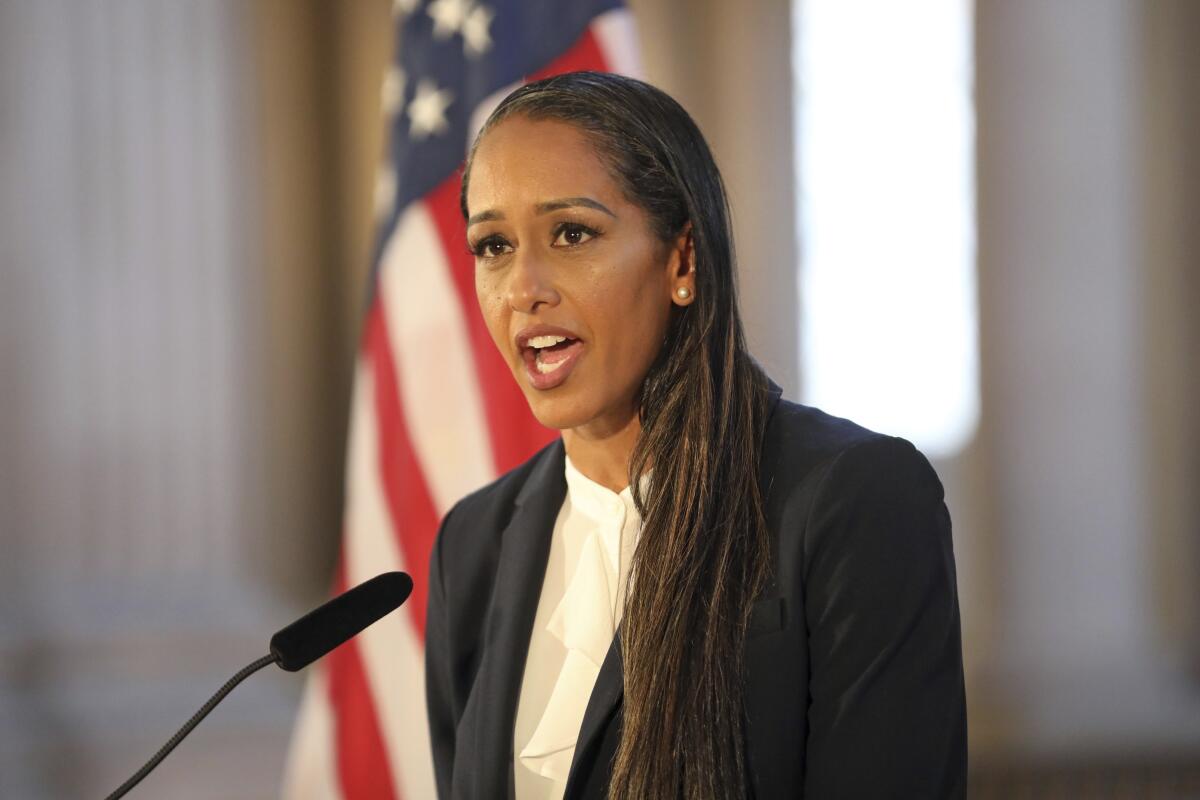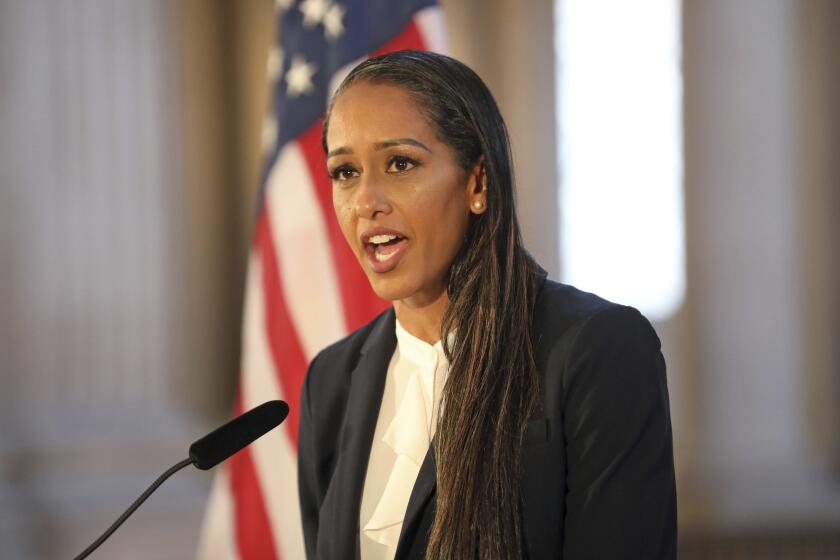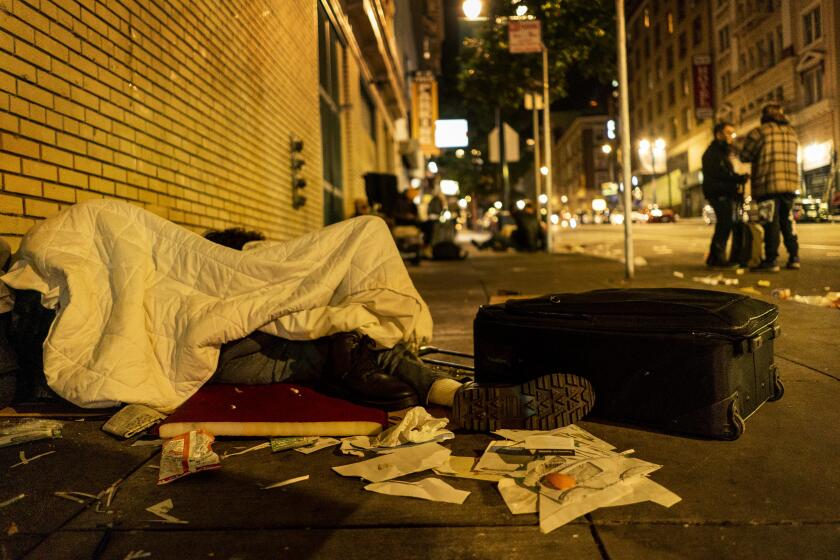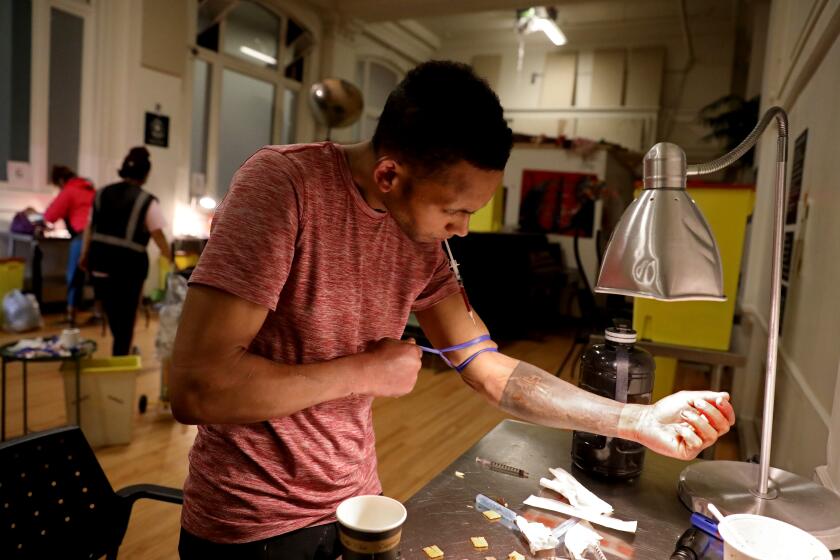San Francisco D.A. revokes plea deals, toughens policies on fentanyl cases

- Share via
Brooke Jenkins, the district attorney of San Francisco, is withdrawing plea deals offered by her predecessor in more than 30 fentanyl-dealing cases in one of the first major shifts in the office’s approach under the new D.A.
The move is part of a raft of policy changes aimed at drug dealers, particularly in fentanyl cases, that could lead to increased incarceration rates and enhanced sentencing.
“We have to make changes now to save lives,” Jenkins said at a news conference Wednesday where she announced the changes.
Under the new policies, those arrested with more than 5 grams of drugs will no longer be diverted to San Francisco’s community courts; dealers selling drugs within 1,000 feet of a school could face enhanced sentences; and “extreme” cases of fentanyl dealing could result in pretrial detention.
After Dist. Atty. Chesa Boudin was recalled, his replacement will be Brooke Jenkins — a prosecutor who quit Boudin’s office to join the campaign against him.
For those whose plea deals are revoked, the district attorney’s office will seek felony charges that could include jail time as part of a new offer, the office said.
“We have to send a strong message that if people choose to sell drugs in our city, that they will be held accountable,” Jenkins said.
The new policies are a reversal from those of Chesa Boudin, the previous district attorney, who lost a voter recall effort in June amid sharp pushback from conservative activists and residents who criticized his administration as too progressive and said it made San Francisco unsafe. Jenkins, formerly a homicide prosecutor in Boudin’s office who resigned last October and became a vocal critic of her former boss, campaigned for Boudin’s dismissal.
According to Jenkins’ office, one of the more “egregious” plea deals being revoked involves a defendant involved in six open cases for allegedly dealing fentanyl in the Tenderloin, a neighborhood at the center of the city’s drug crisis. The defendant was in community court and originally offered to be allowed to plead guilty to a single misdemeanor to settle all six cases.
Facilities where people can use drugs without repercussions remain illegal in California. San Francisco is running one anyway.
Local officials and residents weighed in online, with some criticizing the policy as a return to the failed war on drugs in the 1990s that disproportionately affected people of color and poor communities.
“If District Attorney Jenkins truly wants to address the issues facing our city, she should not be relying on outdated and politically expedient soundbites about harsher enforcement,” Mano Raju, San Francisco’s public defender, said in a statement. “Fifty years of evidence from the war on drugs have shown that these punitive practices have not prevented recidivism nor improved community health and safety.”
Jenkins, who was appointed to the post on an interim basis by Mayor London Breed after Boudin’s ouster from office, faces voters in November, when they’ll decide whether she or another candidate will finish out Boudin’s term.
Boudin announced on Twitter on Thursday that he will not run again in November.
Senate Bill 57 would allow Los Angeles, San Francisco and Oakland to provide a hygienic site where people can inject preobtained drugs. It needs Gov. Newsom’s signature.
More to Read
Sign up for Essential California
The most important California stories and recommendations in your inbox every morning.
You may occasionally receive promotional content from the Los Angeles Times.














